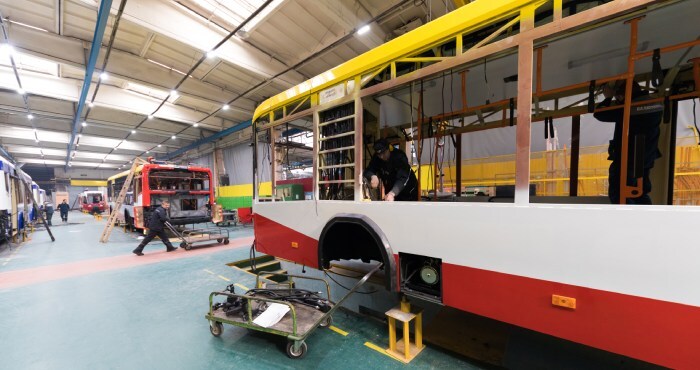Recreational vehicles represent the essence of freedom, exploration, and the coziness of home while traveling, serving as a lifestyle choice for both families and retirees. However, ongoing issues and frequent trips to the repair shop can swiftly interfere with this way of life. Since motorhomes function as both transportation and living spaces, they exist in a distinct legal gray area. Therefore, it is vital for owners to grasp how Lemon Law protections work in order to protect their rights and investments.
The Lemon Law Basics
Most states in the U.S. have enacted Lemon Laws to safeguard consumers who buy or lease faulty vehicles. Typically, if a manufacturer fails to fix a significant defect after several reasonable attempts, the buyer may be eligible for either a new vehicle or a refund. These laws aim to ensure that consumers are not left with unreliable or hazardous products.
The main factors that usually indicate a vehicle qualifies as a lemon include:
- The defect significantly affects the vehicle’s usability, safety, or market value.
- The issue continues to exist despite numerous repair efforts.
- The vehicle is in the repair shop for a long duration (often 30 days or more during the first year or warranty period).
However, the situation becomes more complex when it involves motorhomes.
Motorhomes: Vehicles or Dwellings?
A motorhome differs significantly from a typical car, as it serves both as a vehicle and a living space. Its chassis, engine, and drivetrain classify it as a vehicle, whereas the amenities like plumbing, electrical systems, appliances, and furniture designate it as a home. This hybrid identity leads to legal complexities since various states may not uniformly regard the residential aspect of an RV in relation to its vehicular components.
For instance:
- Subject to Lemon Law: In several states, the driving system, chassis, and powertrain of a motorhome enjoy protections similar to those afforded to conventional vehicles.
- Potentially excluded: The living area, along with its furnishings and appliances, might not be protected under the Lemon Law. Instead, these elements could be covered by distinct warranties provided by the RV manufacturer or other third-party companies.
This separation compels motorhome owners to be vigilant about which elements of their RV are malfunctioning and what forms of protection are available to them.
When Does an RV Qualify as a Lemon?
Issues with the Drivetrain or Chassis
Most state Lemon Laws explicitly include the operational components of the RV. If your motorhome frequently suffers breakdowns related to the engine, transmission, or brakes, you may be eligible to file a claim.
Significant Impact
For a defect to qualify, it must interfere with the RV’s usability, safety, or overall worth. For instance, while a defective air conditioning unit may not meet the criteria alone, a brake system failure would definitely qualify.
Sufficient Repair Opportunities
Generally, manufacturers are required to have a specific number of attempts (usually three to four) to fix the defect before you can pursue a claim.
Duration of Inoperability
If your motorhome is in the repair shop for a total of 30 days or more during the warranty period, it might be classified as a lemon.
Variability in Living Quarters Protection
Some states extend Lemon Law coverage to the living areas of an RV, while others exclude them. In those situations, owners often must rely on written warranties for appliances and fixtures—making it wise to consult a Lemon law lawyer California for guidance.
Federal Protections: The Magnuson-Moss Warranty Act
If your state’s Lemon Law does not provide complete protection for your motorhome, you still have options under federal law. The Magnuson-Moss Warranty Act safeguards consumers across the country by mandating that manufacturers uphold their written warranties. Should defects covered by an RV’s warranty remain unresolved after a reasonable number of repair attempts, you could be eligible for compensation, which may include the recovery of legal costs.
This legislation can be particularly beneficial for motorhome owners dealing with problems related to the living aspects of their RV, like malfunctioning appliances or plumbing leaks, in situations where state Lemon Law does not apply.
Steps to Take If Your RV Becomes a Lemon
If you think your RV might be a lemon, it’s crucial to take a thoughtful approach. Here are some essential actions to consider:
Keep Thorough Records
Maintain comprehensive documentation of all issues, repair attempts, invoices, work orders, and any communication with the dealer or manufacturer. This record-keeping is vital for building a strong case.
Familiarize Yourself with Your Warranty
Examine the warranty provided by the motorhome manufacturer, as well as any additional warranties for appliances or living areas. Understanding what is covered will help you decide your next steps.
Provide the Manufacturer with an Opportunity to Resolve Issues
Most Lemon Laws require giving the manufacturer or an authorized dealer multiple opportunities to fix the defects. Skipping this step could weaken your case, making it vital to consult a California lemon law attorney for proper guidance.
Seek Advice from a Lemon Law Attorney
Cases involving motorhome Lemon Laws can be intricate due to their mixed nature. An attorney specializing in RV-related claims can assess your eligibility and assist you throughout negotiations or legal proceedings.
Understand Your Options
Depending on the situation’s outcome, you may be eligible for:
- A complete refund of your purchase price (after accounting for reasonable use).
- A new replacement motorhome.
- Monetary compensation for any loss in value.
Challenges RV Owners Face
Despite the availability of certain safeguards, owners of recreational vehicles frequently encounter substantial challenges. Manufacturers might minimize issues or redirect responsibility to outside suppliers, and varying state regulations can lead to uncertainty about coverage. Considering that motorhomes are significantly more expensive than standard vehicles, the financial implications are considerably higher, underscoring the importance of tenacity and robust legal support.
Having a motorhome is meant to provide a sense of adventure and liberty, rather than a never-ending cycle of repairs. While they occupy a unique space between vehicles and homes, motorhomes can be deemed defective under specific circumstances. Typically, state Lemon Laws address the mechanical aspects, while federal regulations may safeguard the living quarters. With the right documentation and the support of an experienced Lemon lawyer San Diego, you can pursue justice, recover your losses, and return to enjoying the open road.






